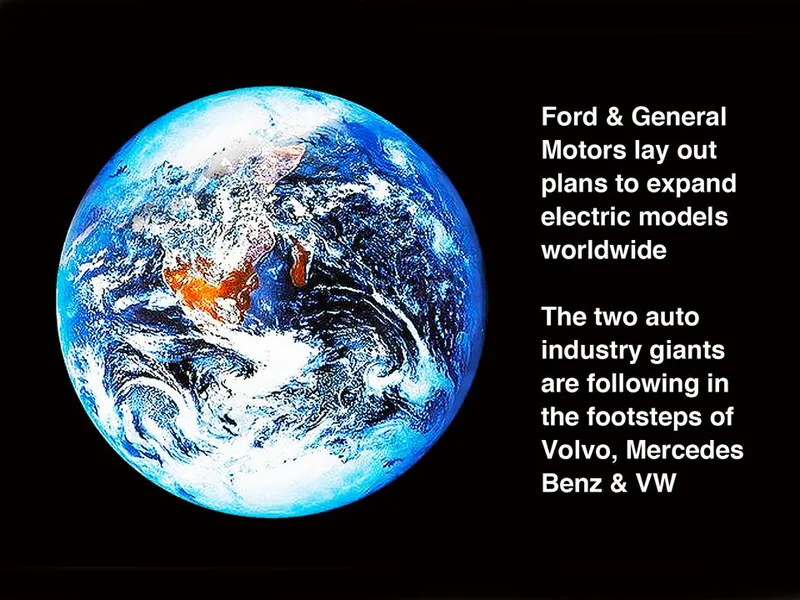
Global Electric Vehicle Rush
US automakers are swept up in a global electric-vehicle rush
William H. Noack / Tribune News Service / Nov 20, 2017
"General Motors believes in an all-electric future," GM product boss Mark Reuss announced recently. "Although that future won't happen overnight, GM is committed to driving increased acceptance of electric vehicles through no-compromise solutions that meet our customers' needs. GM already offers one extended-range electric vehicle – the Chevrolet Bolt EV – but it will add two others within 18 months, and at least 20 will be in the company's lineup by 2023, Reuss said.
Thus did GM become the latest -- but certainly not the only -- car company to reveal a commitment to what is being called the "electrification" of the auto industry. Some, like Sweden's Volvo, have said all their models will soon be either all-electric or hybrid. Germany's Mercedes-Benz will have electrified models of all its vehicles by 2022. Volkswagen AG will invest $20 billion to develop electrified products. In a nutshell, almost every company has some form of plug-in vehicle on its way to U.S. dealerships. And some have many. While many of the vehicles are versions of gas-powered vehicles already in the marketplace, automakers are increasingly seeing the value of producing from-the ground-up dedicated electric vehicles.
Importantly, Reuss, in a nod to stockholders, made it clear the electrification at GM must be profitable. An all-electric future, he said, only makes sense if the company can make money. GM also got a stock boost from its very public declaration that, looking ahead, many of its electric vehicles will also be autonomous vehicles, thus the company benefitted from the "double whammy" of technology leadership perception.
What has brought about this movement to electric vehicles? As with most major changes within the auto industry, it has been a convergence of factors. Government regulations – not just in the U.S. but in many countries around the world – are putting the squeeze on internal combustion engines. Several countries, including Norway and India, plan to ban internal combustion engines entirely. France, Great Britain, and the Netherlands are considering similar moves. Many believe that China – largest auto market in the world – is crucial to EV growth. With its serious pollution and traffic congestion problems, China officials are expected to see that EVs are part of their potential solution.
Another key factor has been falling costs of batteries and related technology which has made electric vehicles more competitive. A recent study by the Boston Consulting Group showed that since 2010, the average cost of lithium-ion batteries has fallen from $670 to about $150. Further, the study says the cost will drop to $70 within five years.
Recent Posts
- The 2022 Audi Q4 e-Tron SUV combines performance, practicality and luxury
- Ford's 2022 F150 Lightning All-Electric Truck is in high demand
- Legendary Audi performance is at the heart of the 2022 Audi e-tron GT and its RS sibling.
- Meet the Lexus RZ 450e – the luxury brand’s 1st EV
- The 2022 GV60 is Genesis’ first all-electric vehicle

